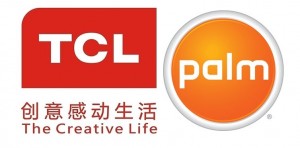Montelibano: Globe applies a holistic approach to M2M, providing competitive advantage to customers.
One of its executives shared that the networking of machines and devices are already evident in everyday living, connecting and enabling a vast array of equipment – from enterprise servers to everyday products – to obtain data and insights about the status of an asset. He shared these facts as the ICT arm of Globe Telecom recently sponsored conferences in the Philippines which were attended by heads and managers of supply chain, purchasing, logistics, materials, procurement and warehousing.
“In 2008, the number of people on earth was exceeded by the number of things connected to the Internet. And by ‘things,’ we mean more than just smartphones and tablets. By 2020, there will be about 50 to 75 billion connected devices around the world,” said JD Montelibano, Globe IG Head of Product Management for Business Applications.
He added that, “these numbers are spurred by the expanding wireless network coverage worldwide, providing necessary bandwidth for everything to be connected and creating a critical mass of mainstream use. For Globe, the new rule for the future is that, anything that can be connected will be connected. Thus, we are ushering in a new era of ‘Telco 2.0’ by providing industries with best-in-breed solutions beyond our core services, such as M2M.”
M2M regional demand: “Asia, where the Philippines is an emerging player, is the largest regional M2M market accounting for 42% of global M2M connections, followed by Europe at 28%; North America at 18%; Latin America, 8%; Africa, 4%; and Oceania, 1%;” he said, quoting the GSM Association or the GSMA which represents the interests of mobile operators worldwide.
As a telco company, Globe is a founding member of Bridge Alliance, the region’s largest machine-to-machine alliance today, a one-stop-shop experience for M2M deployment across the Asia Pacific region and the center of excellence for M2M services and solutions. Montelibano commented that, “with Philippine organizations now operating in a global setting, especially with the onset of the Asean Economic Cooperation, they can hurdle the challenges of blurred geographical advantages, compromised proprietary technologies and increasing difficulties in breakthrough innovations in products and services.”
Montelibano also noted that, as key supply chains become more complex, companies and SMEs face a myriad of challenges involving data handling, delays and inefficiencies, as well as human limitations. They now contend with various measures to keep up with the pace of their businesses, which may compromise productivity, cost and safety of assets to name a few.
“M2M is all about taking more control over assets, as it enables remote surveillance, 24/7 support and reducing costs as well as operating expenses. But above and beyond these, its greatest benefit is providing the competitive advantage to companies as well as SMEs in terms of business analytics, spanning standard access and reporting, to analytics, which allow statistical analysis, forecasting and extrapolation, predictive modeling, and until optimization,” told Globe Vice President for IG Rey Lugtu.
Globe advantage on M2M: The wide mobile and broadband network of Globe, he pointed out, makes it possible for businesses to maximize the three key features of M2M, which is optimization through real-time monitoring and maintenance, transitioning from “preventive” to “predictive;” efficiencies by eliminating delays, excessive overtime charges and accident-related incidents; as well as security through proactive alerts and faster reaction time to theft and pilferage.
“The entire degree of intelligence runs the gamut of analytics which will be the key to supply chain optimization. Customers can harness data into information, which can lead them to insight and action,” Lugtu emphasized. He also asserted that the Globe approach to M2M is “holistic,” involving the user, subscribed M2M devices, its modernized network and state-of-the art Network Operations Center. These are all backed by the telco’s stamp of credibility on accessibility, storage capability, flexible plans and 24/7 managed services.












